Embarking on a journey through the annals of military history unveils a fascinating realm of brevity and intensity—the shortest wars ever fought. From swift and decisive actions to unforeseen conflicts with rapid resolutions, these historical events offer a unique perspective on the nature of warfare. In this exploration, we delve into the succinct chronicles of the 14 shortest wars, each a distinct chapter marked by its brief duration, rapid developments, and the profound geopolitical implications that ensued. Join us in unraveling the stories behind these concise yet impactful global conflicts.
The List of the 14 Shortest Wars In History
14. Gulf War
6 months, 3 weeks and 5 days
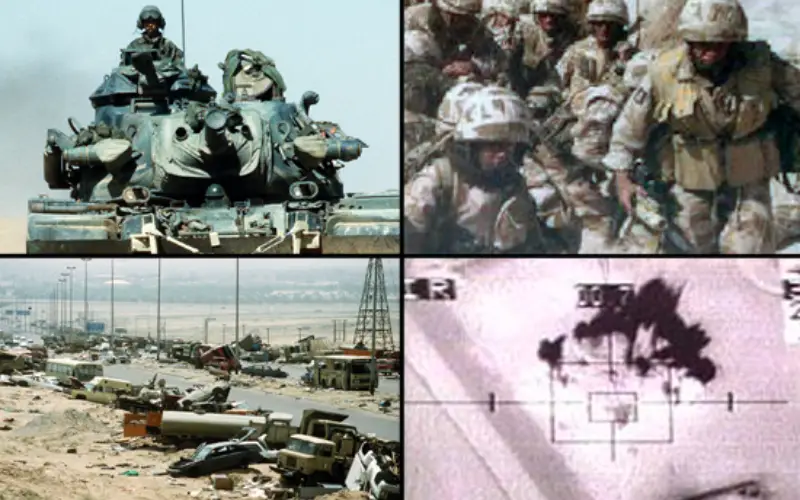
The Gulf War, also known as the Persian Gulf War, took place from August 2, 1990, to February 28, 1991. Triggered by Iraq’s invasion of Kuwait, the conflict involved a coalition of nations led by the United States against Iraq. The international community, alarmed by the blatant aggression, swiftly condemned Iraq and implemented economic sanctions.
The coalition launched Operation Desert Storm in January 1991, a military campaign that featured extensive air strikes and a ground offensive. The war concluded within a remarkably short period, with a cease-fire declared on February 28, 1991. The brevity of the conflict was a result of the coalition’s overwhelming military superiority and the strategic efficacy of their operations.
13. Spanish-American War
3 months, 3 weeks and 2 days
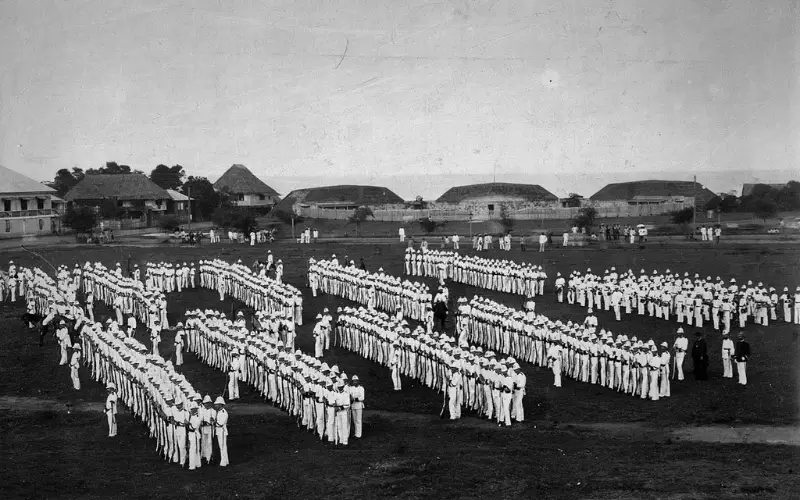
The Spanish-American War occurred from April 21 to August 13, 1898 and was a brief but significant conflict between the United States and Spain. The main catalyst was the explosion of the USS Maine in Havana Harbor, which intensified anti-Spanish sentiments in the U.S. The war primarily took place in the Philippines and Cuba. The U.S. Navy, under Commodore George Dewey, quickly defeated the Spanish fleet in the Philippines, while land forces, including Theodore Roosevelt’s Rough Riders, played a key role in the Cuban campaign.
The war lasted only four months, with the Treaty of Paris signed on December 10, 1898. The agreement granted Cuba independence, ceded Puerto Rico and Guam to the U.S., and sold the Philippines to the U.S. for $20 million. The brevity of the conflict underscored the U.S.’s emerging global influence and marked the end of Spanish colonial power.
12. Insurgency of Ilinden–Preobrazhenie
3 months
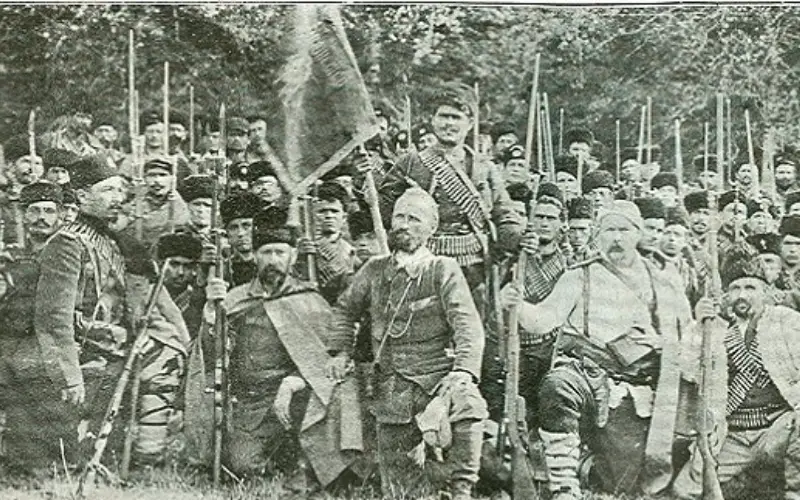
The Insurgency of Ilinden–Preobrazhenie, also known as the Ilinden Uprising, occurred in 1903 in the region of Macedonia, then part of the Ottoman Empire. It was led by Macedonian revolutionaries seeking autonomy and independence from Ottoman rule. The uprising was named after the feast of St. Elijah (Ilinden) and the Transfiguration (Preobrazhenie).
The short-lived insurgency began on August 2, 1903, with coordinated uprisings across different Macedonian towns. The rebels aimed to establish a free and autonomous Macedonian state. However, due to inadequate coordination, limited resources, and the overwhelming response from Ottoman forces, the rebellion faced significant challenges. The Ilinden Uprising lasted for only 3 months, and by November 1903, the Ottoman Empire successfully quelled the rebellion.
Read More Fun Facts
Learn more fun facts with Trivia Mastermind content.
11. Falklands War
2 months, 1 week and 5 days
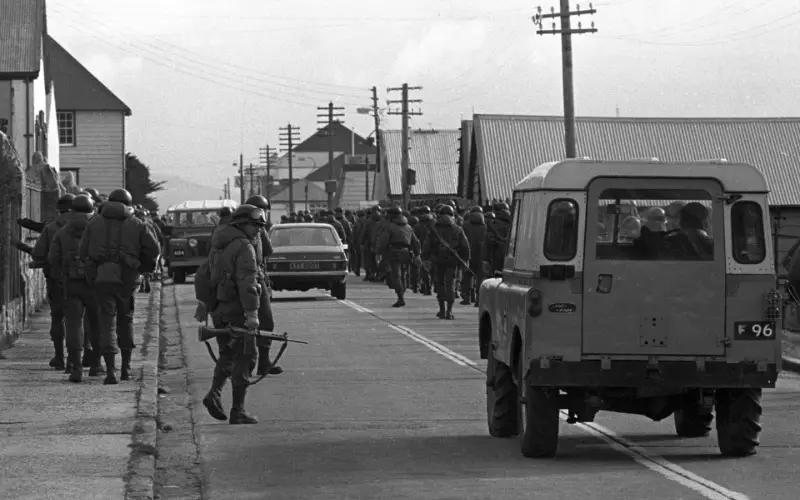
The Falklands War, fought between Argentina and the United Kingdom, took place from April 2 to June 14, 1982. The conflict originated when Argentine forces invaded the Falkland Islands, a British Overseas Territory in the South Atlantic. The dispute over sovereignty of the islands had simmered for years. In response to the invasion, the UK swiftly dispatched a naval task force to reclaim the Falklands.
The conflict featured significant naval engagements, including the sinking of several ships on both sides. British forces conducted a successful amphibious landing on the islands, and after weeks of intense fighting, Argentine forces surrendered on June 14, 1982. The Falklands War lasted just over two months, and its short duration was influenced by the logistical challenges faced by Argentina, the effectiveness of British military operations.
10. Austro-Prussian War
1 month, 1 week and 1 day
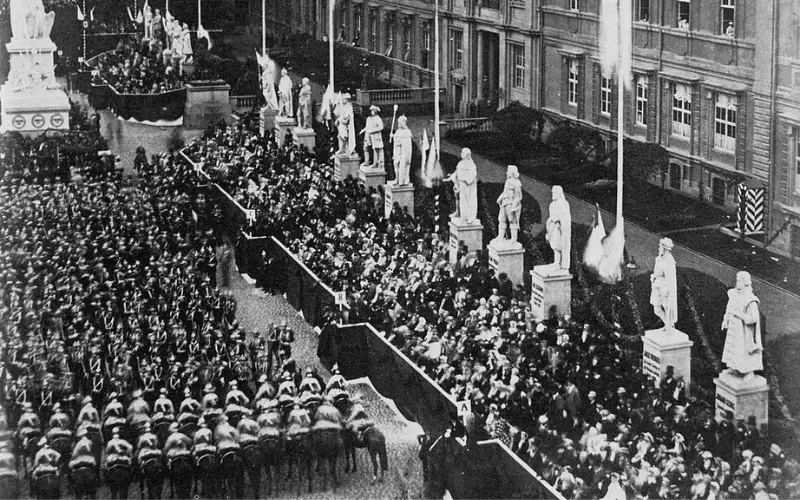
The Austro-Prussian War, also known as the Seven Weeks’ War, occurred from June 14 to August 23, 1866, between the Austrian Empire and the Kingdom of Prussia. The conflict was sparked by tensions over German unification and specifically the rivalry between the two major German powers. The war was characterized by rapid and decisive military campaigns.
The Prussian army, led by Helmuth von Moltke, demonstrated strategic brilliance, employing modern tactics and utilizing the breech-loading needle gun. The key battle of Königgrätz on July 3, 1866, proved pivotal, resulting in a significant Prussian victory over the Austrian forces. The short duration of the war, lasting only seven weeks, was due in part to the effectiveness of Prussian military strategies, superior weaponry, and the decisive outcome at Königgrätz.
9. Turkish-Cypriot War of 1974
4 weeks and 1 day
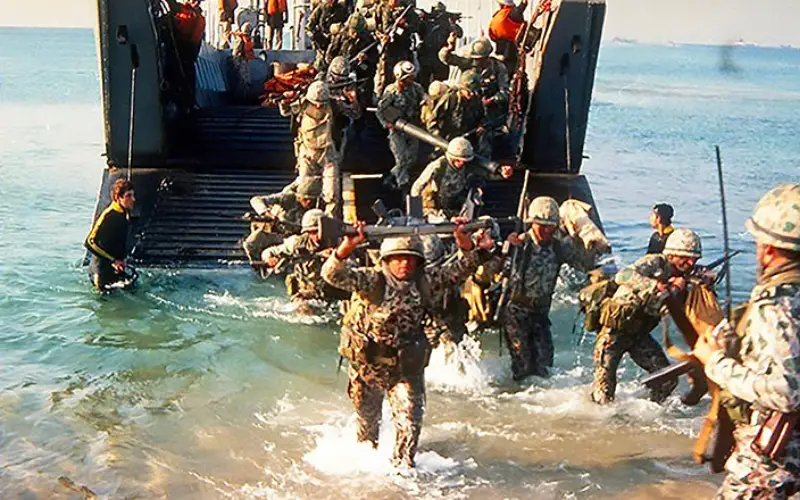
The Turkish-Cypriot War of 1974, also known as the Cyprus conflict or the Turkish invasion of Cyprus, took place from July 20 to August 18, 1974. The conflict erupted following a coup by Greek Cypriot nationalists seeking union with Greece and perceived as a threat to the Turkish Cypriot population on the island.
In response, Turkey launched a military intervention on July 20, justifying its actions as protecting the rights of Turkish Cypriots. The Turkish Armed Forces quickly advanced, and by August 14, a ceasefire brokered by the United Nations was established. The war’s short duration was influenced by the decisive Turkish military intervention and the international pressure for a ceasefire.
Play Trivia!
Challenge yourself and play trivia questions with answers and explanations.
8. Indo-Pakistani War of 1971
1 week and 6 days
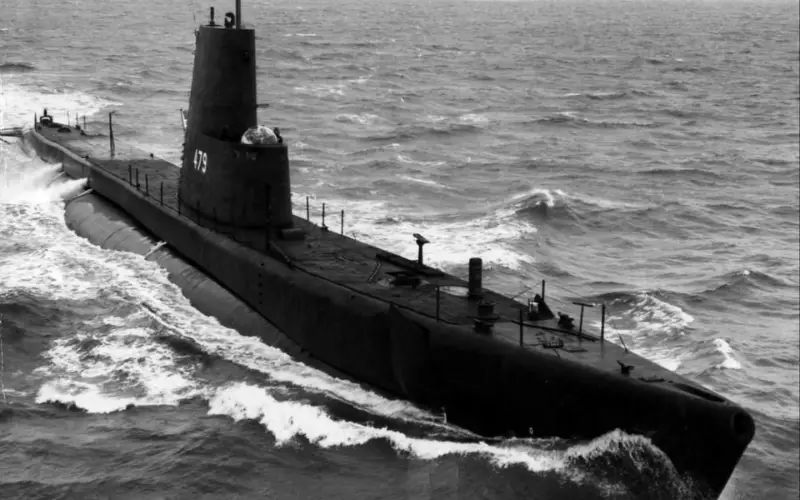
The Indo-Pakistani War of 1971 took place from December 3 to December 16, 1971. The conflict emerged primarily from the political turmoil in East Pakistan and longstanding tensions between East and West Pakistan. The short duration of the war can be attributed to the swift and decisive military actions by India.
The conflict began with preemptive airstrikes by Pakistan on Indian airbases on December 3, prompting India to enter the war in support of the Bengali nationalist movement in East Pakistan seeking independence. Indian forces swiftly advanced, achieving significant victories on both the western and eastern fronts. The pivotal moment came with the surrender of Pakistani forces in East Pakistan on December 16, leading to the creation of the independent state of Bangladesh. The war lasted just under two weeks.
7. Russo-Georgian War
1 week and 4 days
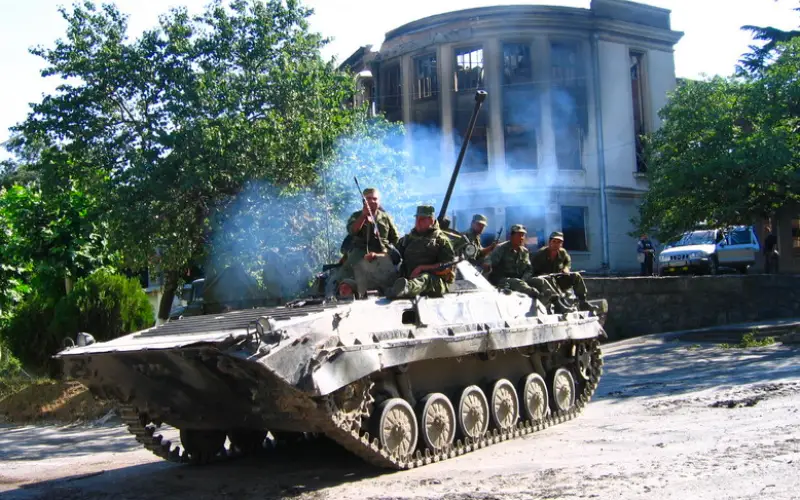
The Russo-Georgian War, also known as the August War, occurred from August 1 to August 12, 2008, between Georgia and Russia. The conflict was sparked by long-standing tensions over the breakaway regions of South Ossetia and Abkhazia, which had declared independence with Russian support.
The short duration of the war was characterized by rapid and intense military engagements. The conflict escalated when Georgia launched an attack to regain control over South Ossetia. In response, Russian forces intervened, quickly advancing into Georgia and occupying key cities. International efforts, particularly a ceasefire brokered by the French president Nicolas Sarkozy, led to a halt in hostilities on August 12, 2008.
6. Six Day War
6 days
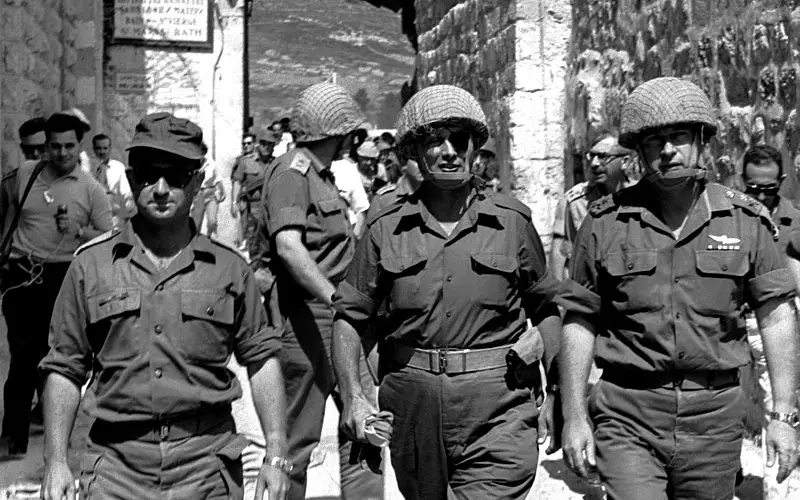
The Six-Day War, fought between June 5 and June 10, 1967, involved Israel against the neighboring Arab states of Egypt, Jordan, and Syria. The conflict was primarily triggered by regional tensions, including disputes over borders, access to water resources, and political differences. The short duration of the war is a defining feature, as Israel achieved swift and decisive military victories.
In a pre-emptive strike, the Israeli Defense Forces (IDF) launched airstrikes on Egyptian airfields, crippling the Egyptian air force. This move set the tone for the subsequent ground offensives. Israel gained control of the Sinai Peninsula, the Gaza Strip, the West Bank, East Jerusalem, and the Golan Heights in a matter of six days. The war concluded with a UN-brokered ceasefire on June 10, 1967.
Read More Fun Facts
Learn more fun facts with Trivia Mastermind content.
5. Football War
4 days
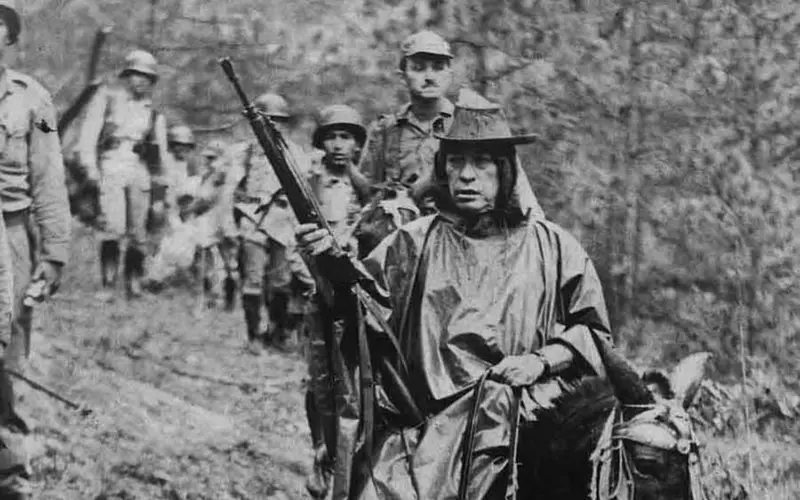
The Football War, also known as the Soccer War, occurred between June 14 and July 18, 1969, involving El Salvador and Honduras. The conflict was fueled by long standing socio-economic and political tensions, exacerbated by disputes over land reform, migration issues, and contentious soccer matches during the qualifying rounds for the 1970 FIFA World Cup.
The short duration of the conflict is notable. Tensions escalated rapidly after a series of World Cup qualifying matches, and on June 14, 1969, El Salvador launched a military offensive against Honduras. The war lasted only a few weeks, with the Organization of American States (OAS) brokered a ceasefire on July 18, 1969. Despite its brief duration, the Football War resulted in significant loss of life and diplomatic repercussions.
4. Wagner Group rebellion
1 day
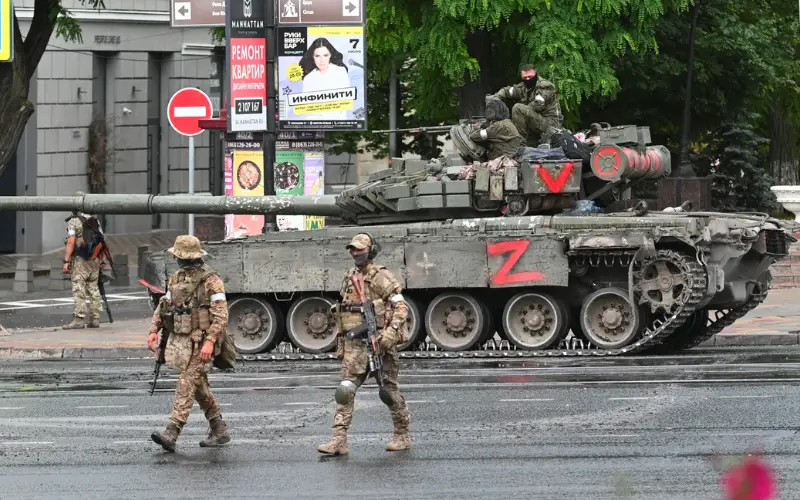
On June 23, 2023, the Wagner Group, a Russian government-backed paramilitary company, rebelled amid rising tensions with the Russian Ministry of Defence and its leader, Yevgeny Prigozhin. A settlement between the parties was reached on June 24, 2023. Prigozhin, supportive of the Russian invasion of Ukraine, criticized Defense Minister Sergei Shoigu and Chief of the General Staff Valery Gerasimov.
President Putin denounced Wagner’s actions as treason. Prigozhin’s forces briefly took control of Rostov-on-Don and the Southern Military District headquarters. An armored column advanced toward Moscow but withdrew after a settlement brokered by Belarusian president Alexander Lukashenko. The rebellion ended on June 24, and the case for armed rebellion was closed on June 27, 2023.
Play Trivia!
Challenge yourself and play trivia questions with answers and explanations.
3. 2023 Nagorno-Karabakh clashes
23 hours 43 minutes
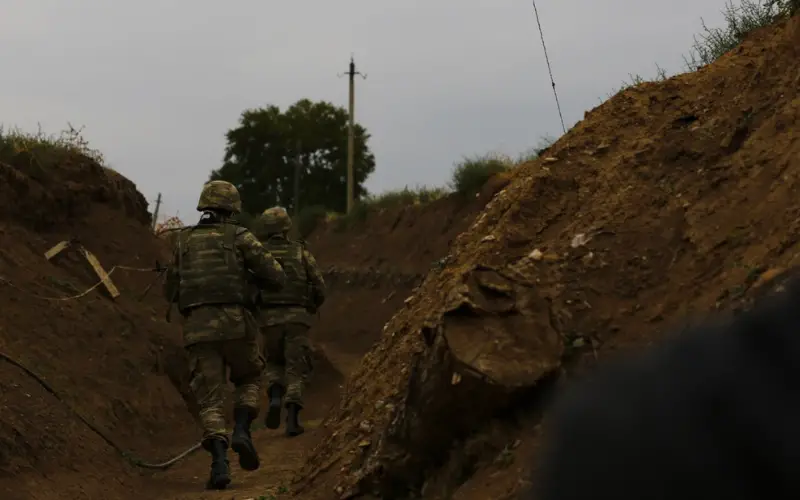
Between September 19 and 20, 2023, Azerbaijan initiated a significant military offensive against Artsakh, a self-declared breakaway state, violating the 2020 ceasefire agreement. The offensive targeted the disputed Nagorno-Karabakh region, internationally recognized as part of Azerbaijan but predominantly populated by Armenians. The attack occurred amid an escalating crisis caused by Azerbaijan blockading Artsakh, leading to severe shortages of essential supplies.
One day into the offensive, on September 20, a ceasefire was brokered by the Russian peacekeeping command in Nagorno-Karabakh. Azerbaijan engaged in talks with Nagorno-Karabakh Armenian representatives on September 21 in Yevlakh, with additional meetings planned for October. Despite the ceasefire, reports of violations by Azerbaijan were noted by both Artsakhi residents and officials.
2. 2008 Invasion of Anjouan
7 hours
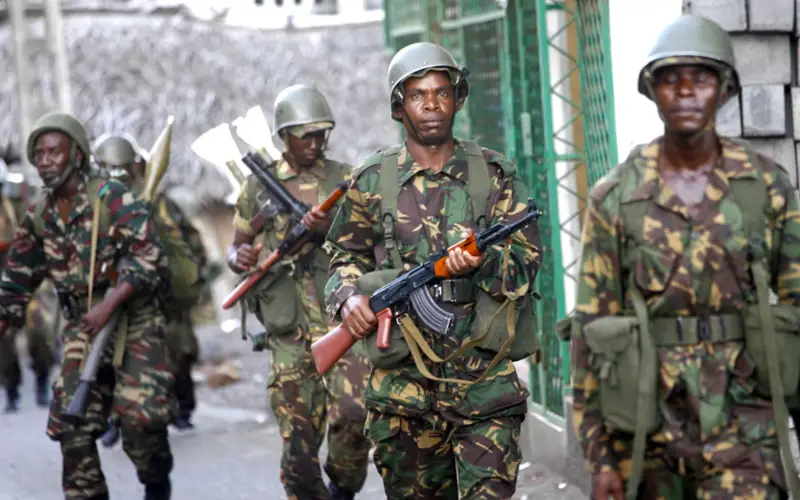
Code-named Operation Democracy in Comoros, the invasion of Anjouan occurred on March 25, 2008, marked by an amphibious assault led by Comoros and supported by African Union (AU) forces, including troops from Sudan, Tanzania, Senegal, and logistical aid from Libya and France. The invasion aimed to oust Colonel Mohamed Bacar, who, after a disputed 2007 election, refused to relinquish power in defiance of the federal government and the AU. The Comoros archipelago, with a tumultuous history since gaining independence from France in 1975, has witnessed numerous coups.
Initiated in the early morning, the invasion swiftly captured main towns, declaring the island under control on the same day. Bacar managed to escape to Mayotte on March 26, seeking asylum. French authorities detained him and brought him to Réunion. On May 15, France rejected Bacar’s asylum request, but the ousted leader couldn’t be extradited to the Comoros due to the risk of persecution, according to the French refugee office.
1. Anglo-Zanzibar war
38 minutes
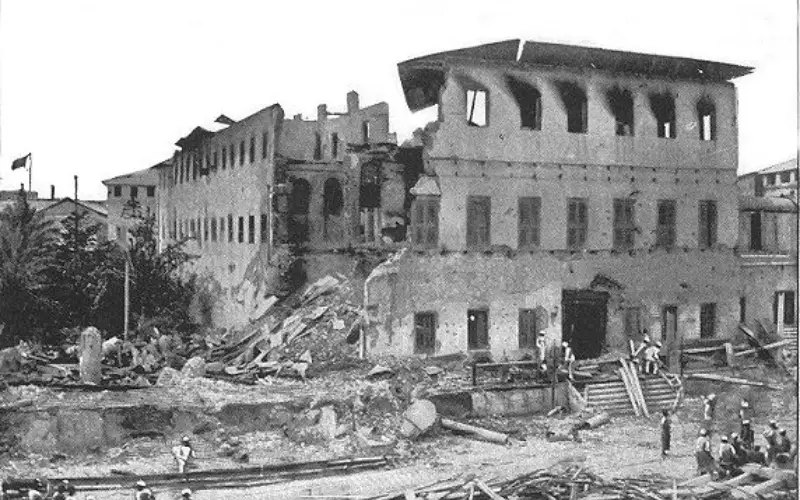
The Anglo-Zanzibar War occurred on August 27, 1896, lasting between 38 and 45 minutes, making it the shortest recorded war. The conflict stemmed from the disputed succession following the suspicious death of Sultan Hamad bin Thuwaini.
The British, favoring pro-British Hamoud bin Mohammed, issued an ultimatum to Sultan Khalid bin Barghash, demanding his forces stand down. With a naval force under Rear-Admiral Harry Rawson, the British bombarded the palace at 09:02, causing a fire and disabling the defending artillery. The Zanzibari royal yacht and two smaller vessels were sunk. The flag at the palace was shot down, and the conflict ceased at 09:46.
Conclusion
As we conclude our journey through the 14 shortest wars in history, we’ve glimpsed into a realm where the ebb and flow of conflict is measured in minutes, not months, and where the outcomes resonate far beyond their brief durations. From the swift and decisive actions of the Anglo-Zanzibar War to the geopolitical shifts triggered by these concise clashes, each war has left an indelible mark on the pages of history. In their brevity, these conflicts have highlighted the unpredictable nature of warfare, reminding us that the impact of a war is not solely defined by its duration but by the profound changes it can usher in.
Read More Fun Facts
Learn more fun facts with Trivia Mastermind content.
Play Trivia!
Challenge yourself and play trivia questions with answers and explanations.
Recent Posts
Science Trivia - Astronomy ...
Step into a realm of nostalgia as we embark on a journey through the annals of pop culture and bid farewell to 35 recently obsolete technologies. In the ever-evolving landscape of innovation, certain...


